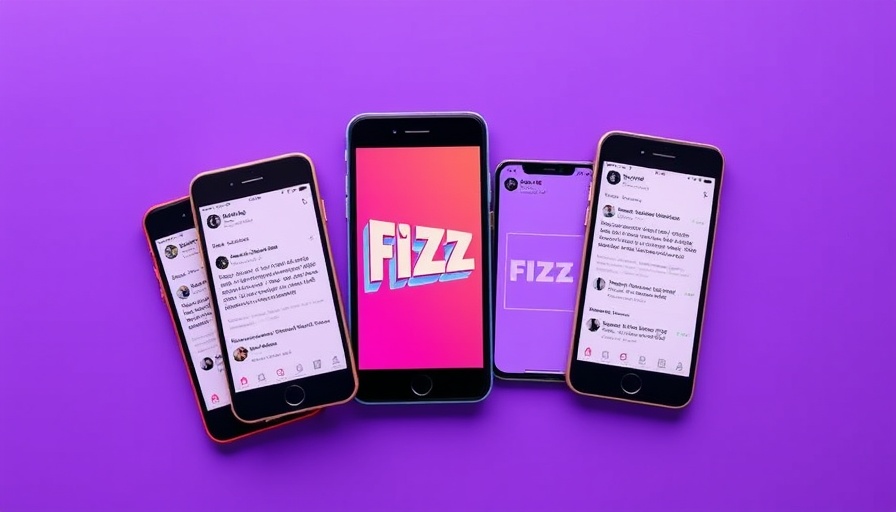
The Legal Battle Over the Fizz Name: What Are the Implications?
In a notable case shaking the foundations of the tech startup scene, social media platform Fizz has filed a lawsuit against Instacart and Partiful for trademark infringement. This comes in light of Instacart's launch of a new app named Fizz for drinks and snacks at parties, which Fizz argues could confuse consumers about its own brand.
Why Trademark Matters for Startups
For young companies like Fizz, trademarking is essential for safeguarding their brand identity. Having launched in 2020, Fizz primarily caters to the Gen Z demographic across over 400 college campuses. A unique brand name, such as Fizz, is not just a label; it's part of the company's appeal, identity, and potential for growth.
As startups are often vulnerable to copycats, understanding and maintaining trademark protections has become a vital part of their business strategy. This latest lawsuit underscores the significant challenges that startups face in establishing their names and identities against larger, competing firms with more substantial resources.
The Stakes Are High: Brand Reputation on the Line
With a population that is particularly sensitive to branding and authenticity, Gen Z is likely to form emotional connections with brands that reflect their values. Fizz’s lawsuit points to a potential overreach by Instacart and Partiful, stating they aim to exploit the goodwill that Fizz has worked hard to develop. The outcome of this case could set a precedent for future tech startups, especially when it comes to building and protecting their brands.
Lessons for Small Business Startup Ideas
For aspiring entrepreneurs, this lawsuit serves as a critical reminder of the importance of comprehensive business startup strategies. Right from the beginning, budding entrepreneurs should prioritize:
- Conducting thorough trademark searches before settling on a business name.
- Registering trademarks as soon as possible after launch.
- Understanding the legal landscape to mitigate risks of infringement and ensure compliance with intellectual property laws.
Understanding Trademark Infringement
Trademark infringement occurs when one entity uses a trademark identical or similar to another's without permission. It can lead to confusion among consumers, possibly diluting the original brand's value. In this case, Fizz claims that Instacart's and Partiful's actions deliberately aim to mislead consumers.
It’s essential for businesses to stay educated about their rights and to consult legal experts early to avoid costly mistakes.
Looking Ahead: The Future of Fizz and the Market
The unfolding lawsuit against Instacart and Partiful isn't just about Fizz. It raises pressing questions for all tech business startups: What are the challenges surrounding brand identity? How vital is it to protect that identity in a crowded market?
The outcome of this legal battle could influence how other startups approach their branding and intellectual property strategies. It signals the growing necessity for new companies to safeguard their identities aggressively and navigate potential pitfalls associated with trademark infringement.
Call to Action
If you are an entrepreneur or aspiring startup owner, ensure that you protect your brand and understand the legalities of trademarks. Equip yourself with the right knowledge, resources, and legal counsel as you develop your business startup plans. Knowledge is power when it comes to avoiding potential legal challenges in your journey toward success.
 Add Row
Add Row  Add
Add 



Write A Comment